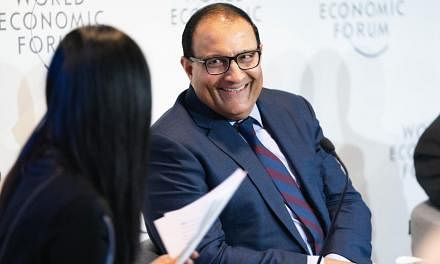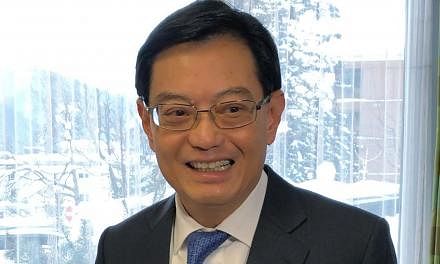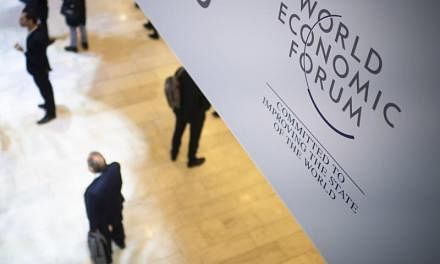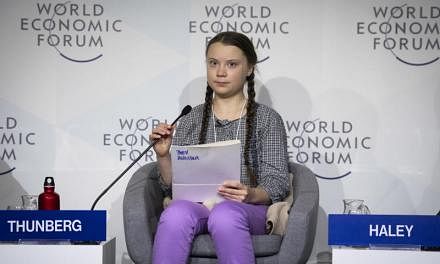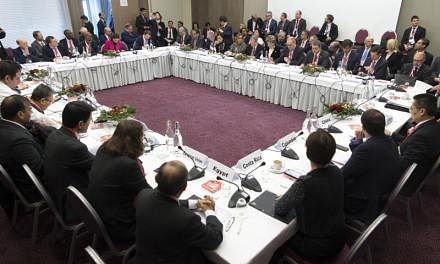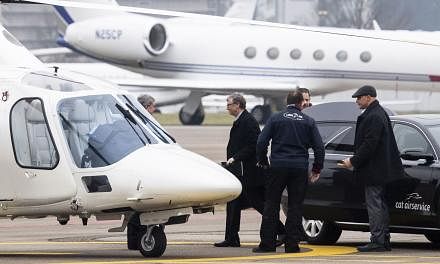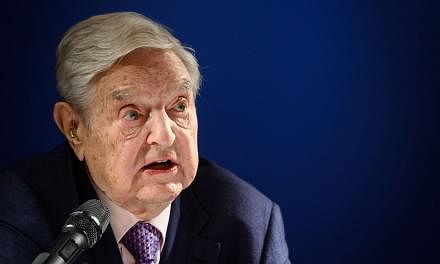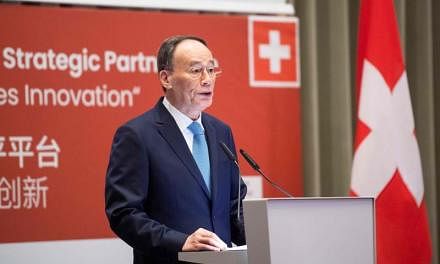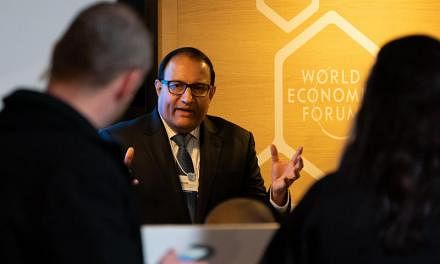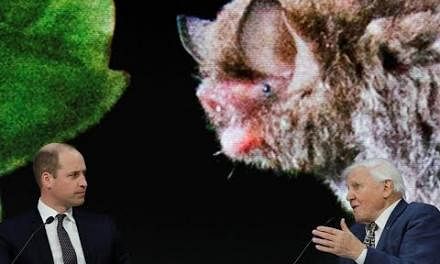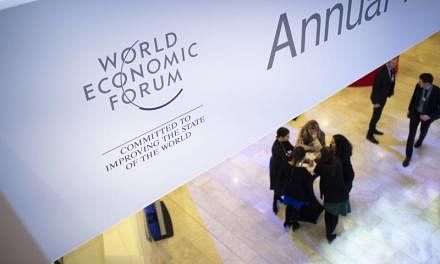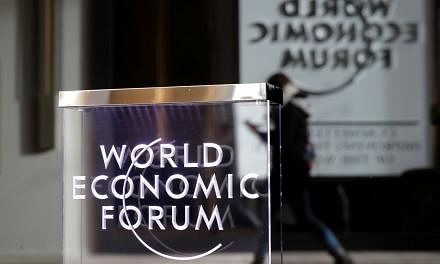DAVOS • The world is "losing the race" against climate change, United Nations chief Antonio Guterres warned, demanding bolder action from governments to arrest runaway warming.
Mr Guterres delivered the no-holds-barred appraisal yesterday to business and political leaders gathered at the World Economic Forum (WEF) in Davos, which has featured much hand-wringing on the planetary crisis this week.
"In my opinion, it is the most important global systemic threat in relation to the global economy," the UN Secretary-General told his high-calibre audience.
"Climate change is running faster than we are," he said. "I believe we are losing the race."
The business community and civil society are increasingly engaged, "but the political will is still very slow", he said, lamenting the position of climate doubters.
"We are moving dramatically into a runaway climate change if we are not able to stop it."
A UN summit last month in Poland, which was designed to advance the Paris climate accord, laid bare continuing fissures over the share of responsibility among countries to cap temperature rises.
The Paris accord has been shaken by the withdrawal of the United States under President Donald Trump, and by threats to do the same by Brazil's new hard-right leader, Mr Jair Bolsonaro.
Mr Guterres, on an earlier Facebook Live broadcast, said the commitments made in Paris were already not enough, and he was not hopeful that nations would find the necessary resolve. "If what we agreed in Paris would be materialised, the temperature would rise more than 3 deg C," he said.
"We need countries to make stronger commitments," Mr Guterres said, calling for more measures to mitigate climate change and adapt to it, along with financial aid for poorer countries.
A WEF survey ahead of the Davos meeting found climate change was the leading concern of forum participants around the world, noting in particular the growing frequency of extreme weather events.
Corporate executives in Davos such as Mr Patrick Pouyanne, chief executive of French energy giant Total, have been touting their own measures to transition to a greener economy.
The UN chief yesterday also warned of another problem faced by the international community. The world is facing worrying fragmentation, Mr Guterres told the audience in Davos, warning that the relationship between the US, Russia and China was worryingly out of kilter. "The relationship between the three most important powers - Russia, the United States and China - has never been as dysfunctional as it is today."
Mr Guterres said the ongoing shift away from a world dominated previously by two Cold War superpowers was creating "a bit of a chaotic situation".
"We no longer live in a bipolar or unipolar world, but we are not yet in a multipolar world," he said.
"Power relations (are) becoming unclear," he added, urging countries to work together and support multilateralism.
The US has been locked in a trade war with China and others that has rocked the financial markets and sparked fears of a slowdown in the global economy.
And Washington's relations with Moscow have been hit by allegations of Russian meddling in US politics and a stand-off over the fate of a Cold War-era nuclear weapons treaty.
The dysfunction is evident "in the economy, but it is also true in the Security Council", Mr Guterres said, lamenting the recurring paralysis of the UN's top body.
"We are in a world in which global challenges are more and more fragmented, and the responses are more and more fragmented," he said. "If this is not reversed, it is a recipe for disaster."
AGENCE FRANCE-PRESSE
